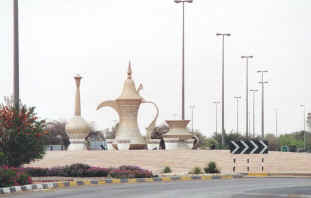
During a reading in (Knowledge Management / by Elias M Awad & Hassan M. Ghaziri) I stopped a while with these two paragraphs about the role of trust. Which I think it is important to be understood by many of our planning managers and acting peers. However, how it will reach them all?
Simply it returns me back to my wonderful blog. Thus, I cite that paragraphs as they are:
Simply it returns me back to my wonderful blog. Thus, I cite that paragraphs as they are:
" Knowledge-based organizations are learning human systems. One of the requirements that encourage the flow of knowledge is establishing an environment where employees feel free to share insights, experiences, and know-how. This boils down to the issue of trust. Trust support the KM process by giving employees clear impressions that reciprocity, free exchange, and proposing innovations will be recognized and fairly knowledge and build suspicion in people and organizational processes.
Trust means integrity, consistent communication, and proven willingness of the organization to integrate employees into the decision-making process. For trust to be effective, and organization must make an overt effort to embed trust in the culture of the business. This means tackling the environment of trust from several angles: human resources, management initiatives, top management support, and demonstrating to knowledge employees that they belong. It becomes the cement that glues an organization together in its effort to address an unpredictable competitive environment. The bottom line is that one cannot have an open, candid dialogue with someone he or she does not trust. If one trusts his or her peers, then there should be no concerns about where they stand. "(p25)
* image source : http://news.synearth.net/2005/06/02
Thanks
Ahmed Aljaberi
Ahmed Aljaberi
